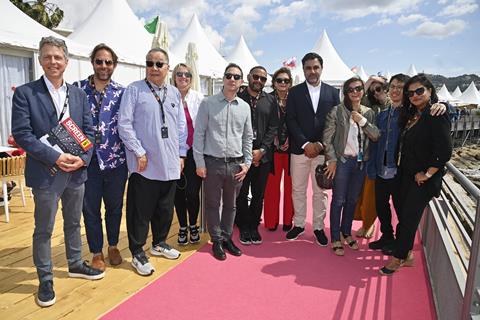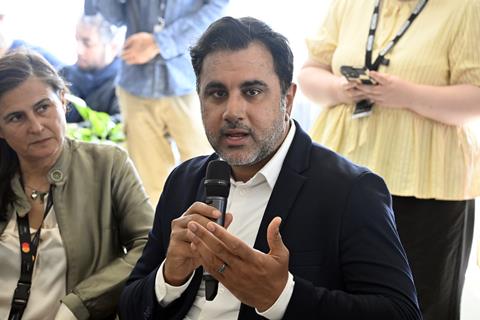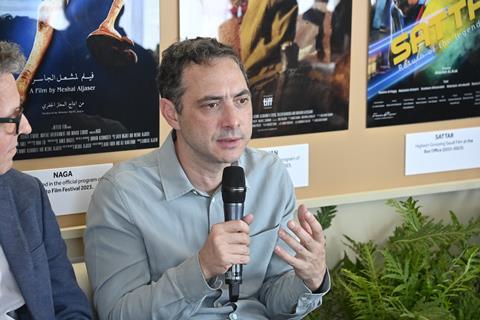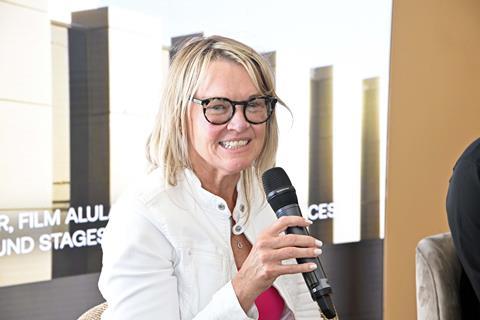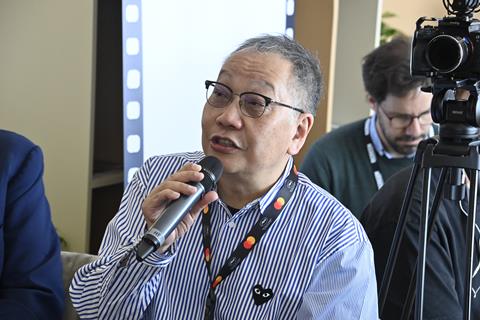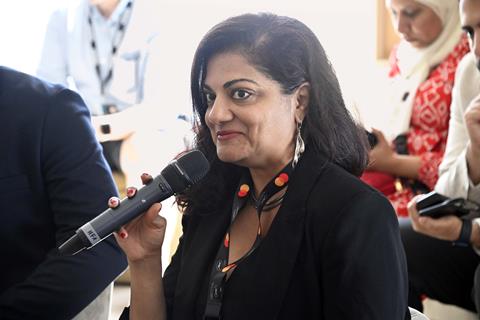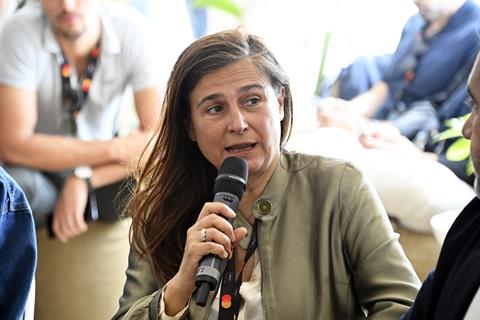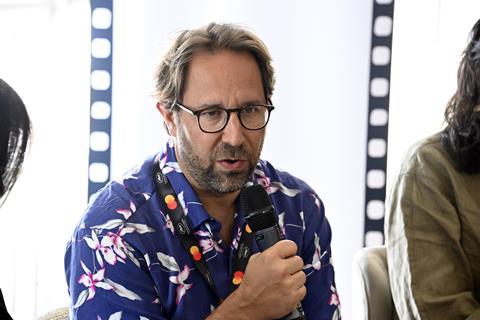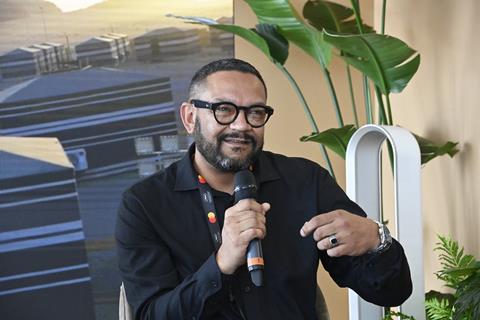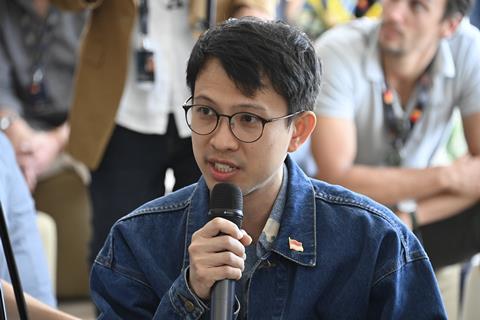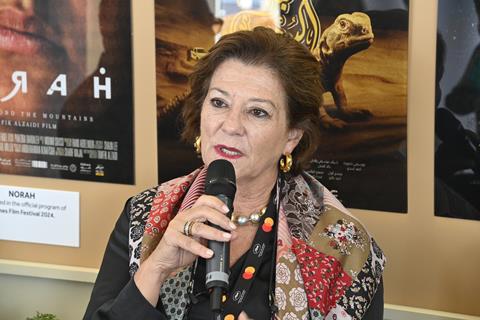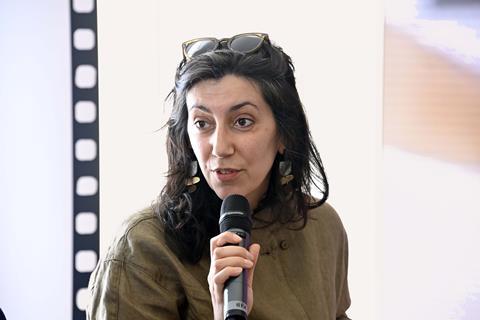Abduljalil Al-Nasser, general manager of sector development and investment at Saudi Film Commission (SFC) provided a road map detailing how the Saudi industry is set to evolve in the coming years, at a Screen International roundtable in Cannes, hosted by SFC.
“The Saudi Film Commission mandate is to help build the entire value chain of the film industry in Saudi Arabia. We are responsible for empowering local companies and international production to come to the country and also to empower everyone along the way with resources and solutions, the technology and the infrastructure to tell more stories and shoot more films in the country,” explained Al-Nasser.
He cited talent development as one of the most important elements of his work and highlighted that the commission strategy is focused on local production as much as international by offering both the same rebate percentage.
SFC came into existence in February 2020, “one month before the pandemic… great timing in many ways”, commented Al-Nasser with irony. The positive, though, was that SFC was given “a blank slate to build the industry from the ground up”.
In the five years of SFC’s existence, the global film industry has experienced huge convulsions. Box office has plummeted, streaming has come to the fore and the Hollywood actors and writers strikes slowed down international production. “We had to navigate through all of this while building the industry from the ground up,” noted Al-Nasser.
Building momentum
Nonetheless, rapid steps were taken. In 2021, incentives were introduced, and Red Sea International Film Festival was launched. There is also now a film fund, and studio soundstages have been built.
“It wasn’t an easy journey for us. In 2018, the country didn’t have any cinema screens. We didn’t have cinema at all. If you fast forward to today, we have 633 screens,” said Al-Nasser. “The country is transforming quickly but the thing we are most optimistic about is that we are empowering local voices to tell their own stories as much as to attract international productions.”
Other panellists offered their perspectives on the fast-growing Saudi market. Producer and studio management executive Neerja Narayanan spoke of “the great advantage Saudi has and the whole MENA region, in that you’ve got a young audience, a growing audience and a hungry audience.”
She called on “young creators in Saudi to embrace alternative models to get their voices and stories out there, for example to use YouTube and similar digital mediums and technologies and create programmes that allow them to do that”.
Narayanan also suggested the challenge that SFC faces will be to attract both large-budget international productions like Mission: Impossible — The Final Reckoning to shoot in the country, and “to avail of their services”, but at the same time ensure the “lion’s share” of resources is kept for local productions.
She also wants to ensure a large percentage of rebates can be accessible immediately to producers, and for SFC to consider quotas to ensure “a minimum amount of crew is from Saudi [and are] women, so you are tackling problem areas from the outset while encouraging international collaborations and investment”.
Al-Nasser noted that local films are making inroads in Saudi cinema, citing the success of homegrown comedy Sattar following its release in 2022 and that many other local titles are performing better than international releases.
Last year saw the first Saudi selection in Cannes, Tawfik Alzaidi’s Norah, which played in Un Certain Regard. Saudi movies accounted for 6.7% of total box office in 2024.



















